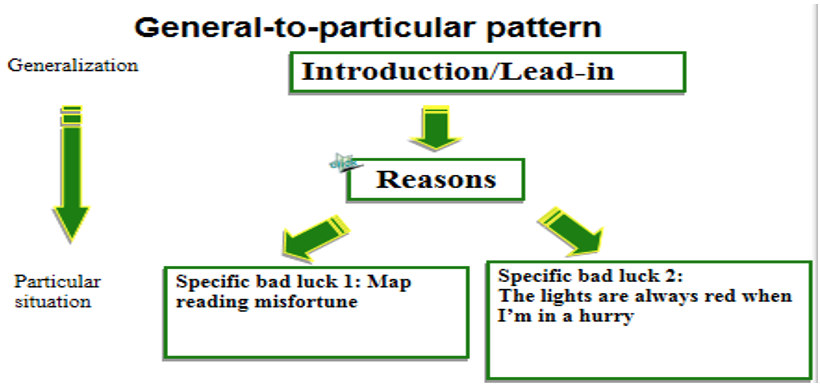Unit 7 Can bad luck be explained
 知识点一:Text Analysis: Can bad luck be explained
知识点一:Text Analysis: Can bad luck be explained
I. Warming up
(1) What is the article mainly about?
It explained some of the phenomenon which sometimes strike us as a matter of luck.
(2) Does dad luck usually lead to more bad luck? Can bad luck be explained by science?
I guess it can. Once you have lost your job, your family may break up an dyou might fall ill from stress and so on downwards.
I guess some of it can be explained like the one with the toast, but not all of it. There’s no reason why one person took the plane that crashed and another didn’t.
II. Text analysis
1. Theme
What does the author mean by bad luck? Can bad luck be explained? Is bad luck an acceptable explanation for when things go wrong?
2. Structure

3. Detailed Analysis
(1) Bad luck ____.
(a) can be explained by science
(b) can be partly blamed on strange coincidences
(c) only really exists in people’ s minds
(d) is impossible to explain
(2) “Bad luck” is a problematic concept because ____.
(a) it is relative; some things are more “bad” than others
(b) it suggests a connection between science and morality
(c) luck is never good or bad by definition
(d) it encourages people not to take responsibility for their own actions
(3) Unlucky events seem to come in threes because ____.
(a) three is an unlucky number in most cultures
(b) the mind wants to make connections between events
(c) we don’ t notice single unlucky events
(d) we can’ t remember more than three connected events
(4) For some people, unlucky events are connected because ____.
(a) they are psychologically weaker than other people
(b) they have better memories than other people
(c) they define bad luck differently from other people
(d) the first unlucky event has an effect on them which makes the second event more likely
(5) The writer says map reading is a frustrating experience because ____.
(a) the destination will often be marked very near the edge of the map
(b) it is difficult to consult a street atlas while you’ re in a car
(c) the destination is unlikely to be marked in the middle of the map
(d) modern road maps have not been well designed
(6) The writer says we believe that traffic lights are always red when we’ re in a hurry because ____.
(a) traffic lights spend more time on red than green
(b) we hardly notice when the lights are green
(c) red lights are a source of stress
(d) red lights appear more often when a driver is in a hurry
(7) The examples of map reading and traffic lights both show that ____.
(a) we are often too ready to interpret a neutral event as “bad”
(b) if we are in a hurry, something bad will usually happen
(c) journeys need to be carefully planned to avoid things going wrong
(d) bad luck is a direct result of stress and anxiety
III. Reinforcement:
Discussion
(1) Is bad luck an acceptable explanation for when things go wrong?
(2) Are there any non-scientific ways people use to avoid bad luck?
(3) Are some people luckier than others?
(4) How can science challenge old-fashioned thinking, such as superstition?
